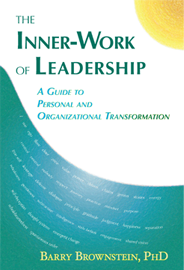The Conference Board said yesterday that its Consumer Confidence Index fell to its lowest level in 16 years. No doubt, sharply rising energy prices have contributed to this fall.
I have often told my classes that rising energy prices are not something I fear, and then I proceed to give a big exception: “If government becomes heavily involved in the market for energy, I will add rising energy prices to my list of fears.” Allow me to explain.
Before the Industrial Revolution, life for most was lived at a bare subsistence level. Most grew their own food and made their own clothing. Few lived in cities, most were malnourished, and energy was very expensive.
Before 1700, charcoal was the dominant fuel used in England. By the 18th Century, England had used up most of its forests to make charcoal. So how could the Industrial Revolution have begun in England without a viable fuel source? Did an English king or parliament promise to solve the problem? Did they punish speculators? Did they subsidize some alternative forms of energy? None of this occurred, but alternative fuels began to arise as ironmakers began to use cheaper coke (a form of coal) instead of charcoal.
Until 1850, in some homes, whale oil was the preferred form of fuel for indoor illumination because it burned with less smoke and odor. By contemporary standards, whale oil was enormously expensive; the average home could not afford it. For many Americans at that time, indoor activities basically ended at sunset.
In 1857, a clean burning kerosene lamp was introduced, and the use of relatively scarce whale oil ended very rapidly. By the end of the 1800s, refined petroleum was selling for literally pennies a gallon—there had been an astonishing reduction of almost 97% in the price of refined petroleum.
Since falling energy prices in real terms has been the norm for centuries, it is instructive to ask: What has gone wrong in the past few years? Many explanations are offered: The “peak oil” theorists say we are running out of fossil fuels. Others blame growing demand from the emerging economies of China and India. Others blame large oil companies. Still others blame speculators. All of these explanations do not reveal the truth.
First, consider that we were running out of charcoal; then we were running out of whale oil; but yet, alternatives—developed by entrepreneurs on the free-market—pushed energy prices down at dramatic rates. This dramatic fall in the cost of energy has played a large role in the growth of the middle class.
Next, consider the dramatic rise in energy usage caused by the Industrial Revolution and by the growth of the United States. During this same period, energy prices fell dramatically. Rising demand coaxed out more supply and more efficient ways to find and use energy. When we review history, we see that neo-Malthusians, such as Paul Ehrlich and the Club of Rome, have been claiming for decades that we are running out of resources. The truth is that the emergence of the Chinese and Indian economies is a happy occurrence for the billions who have been impoverished for so long.
Then, consider large oil companies. I will not defend their honor, but I will point out that the assertion that they have formed a nefarious cartel, impervious to market forces, is about as believable as saying that Ford, Chrysler, and GM could band together and increase prices in order to solve their woes.
Finally, consider speculators. A speculator is a friend of the consumer. Speculators can only make money if they buy low and sell high. In other words, they will make money only if they transfer supply from times of relative plenty to times of relative scarcity. If they are wrong, they must sell when prices are lower; thus speculators have every incentive to avoid such blunders.
If mainstream explanations for rising energy prices hold little water, what instead can we look towards? First, the Fed by destroying the value of the dollar must take a large share of the responsibility. As importantly, we can look towards ethanol subsidies that have drained away billions of dollars from the market—dollars that could have been invested in the discovery of truly viable alternative fuels.
Obama and Clinton are promising more of the same. Obama ‘s official web site promises this:
Obama will invest $150 billion over 10 years to advance the next generation of biofuels and fuel infrastructure, accelerate the commercialization of plug-in hybrids, promote development of commercial-scale renewable energy, invest in low-emissions coal plants, and begin the transition to a new digital electricity grid. A principal focus of this fund will be devoted to ensuring that technologies that are developed in the U.S. are rapidly commercialized in the U.S. and deployed around the globe.
Did you feel angry or did you laugh when you read “Obama will invest…”? No, Obama will not contribute any of his own money; he will drain away $150 billion from consumers and entrepreneurs who can fund viable alternative energy and, in the process, throw away on follies such as ethanol not his own but other people’s money.
As for Clinton, her official campaign site promises:
Hillary would transform our economy from carbon-based to clean and energy efficient, jumpstarting research and development through a $50 billion Strategic Energy Fund and doubling investment in basic energy research.
If you believe that Hillary and her band of experts are smarter than thousands of entrepreneurs who are committing their own resources toward discovering alternative energy sources, then you should vote for her.
As for McCain, he has been all over the place on ethanol. His web site promises: “John McCain Will End Policies That Contribute To Higher Transportation And Food Costs. Ethanol subsidies, tariff barriers and sugar quotas drive up food prices and hurt Americans.”
Clearly, of the three, McCain currently has the most promising position on energy; but he may flip-flop yet again. When in the debates he will have to talk in 30 second bites, McCain is likely to be hammered by Obama alleging that he is not doing enough to help the American people.
And what of the American people? It is a truism that we will get the government we deserve. If we collectively have little understanding of history and economics, we will fall for the seductive call for yet more government intervention. If we are seduced, the current level of consumer confidence will seem in hindsight to have been high.



I think you’re focusin too much of this discussion on government. It is rather interesting nontheless on what the candidates positions are. They are being pressured to explain their positions because of the collective anger at what seems to be excessive profiteering (ie unjust windfall profits due in part to monopoly posture in the sector) at a time when the country as a whole feels economically depressed: For instance, on February 1, Exxon made history by reporting the highest quarterly and annual profits ever for a U.S. company (for any company, including Microsoft, Google, GE, etc.). Exxon said fourth-quarter net income (2007) rose 14% to $11.66 billion. In 2007, Exxon set an annual profit record by earning $40.61 billion last year — or nearly $1,300 per second.
I agree that government should not be involved in corporate affairs, especially energy. In time, the markets will settle the issue and until then, most of this government posturing is purely that, posturing.
E,
I agree with you that oil companies are a hard lot to defend.
I hope you are right but I think this is more than just posturing. The support for subsidization of ethanol as well as nuclear (that is a little known story for another post) has been bi-partisan for many years. The pressure to do more is enormous and this doing more will at some point leave the market unable to function.
Politicians have to look like they’re doing something (no matter how counterproductive), or else they get branded as not doing something to help the American people. And the people have been so seduced by politician’s promises for intervention that they ignore what ever lessons history and economics have taught them. Giving Up Control requires running on faith (for lack of a better word). Faith that the market with its millions of minds will arrive at a better solution than some politician’s advisor. Instead of looking at how small the pie is and how government should intervene to make sure everyone gets a slice, we need to let the entrepreneurs figure out how to make the pie bigger, as occured with Dr. B’s example of energy prices. The market can bring the changes we need, but only if we allow it to. If we cling to the past (centralized energy creation in powerplants, fossil fuels, government subsidies and such), we will get what we have always gotten. As Einstein said, “We can’t solve problems by using the same kind of thinking we used when we created them.” But government can never exceed what it is, and will always lag the market. In the age of modern technology, the gap between the speed with which the market moves and the speed at which the government moves is so great (and increasing exponentially) that there is no way politicians are capable of solving any of our problems, let alone energy issues.
Jim,
Very well said!
Yes, the people get the kind of government they deserve, but I resent that I have to get that as well. I am often amazed at how people I talk to will admit that one government program after another has been a dismal failure, yet will still look toward that some snake-oil-salesman siren call sung by the politicians to solve the current crisis. Which crisis was usually *created* by those same politicians. Various quotes from Mencken would be appropriate here, but three of my favorites are:
Democracy is the theory that the common people know what they want, and deserve to get it good and hard.
Liberty is not a thing for the great masses of men. It is the exclusive possession of a small and disreputable minority, like knowledge, courage and honor. It takes a special sort of man to understand and enjoy liberty — and he is usually an outlaw in democratic societies.
When a candidate for public office faces the voters he does not face men of sense; he faces a mob of men whose chief distinguishing mark is the fact that they are quite incapable of weighing ideas, or even of comprehending any save the most elemental — men whose whole thinking is done in terms of emotion, and whose dominant emotion is dread of what they cannot understand. So confronted, the candidate must either bark with the pack or be lost… All the odds are on the man who is, intrinsically, the most devious and mediocre — the man who can most adeptly disperse the notion that his mind is a virtual vacuum.’ The Presidency tends, year by year, to go to such men. As democracy is perfected, the office represents, more and more closely, the inner soul of the people. We move toward a lofty ideal. On some great and glorious day the plain folks of the land will reach their heart’s desire at last, and the White House will be adorned by a downright moron.
We live in interesting times, yes?
Chris Claypoole
Chris,
Thank you for sharing Mencken’s wisdom. Yes, it is amazing how faith that the next government program will get it right remains unabated.